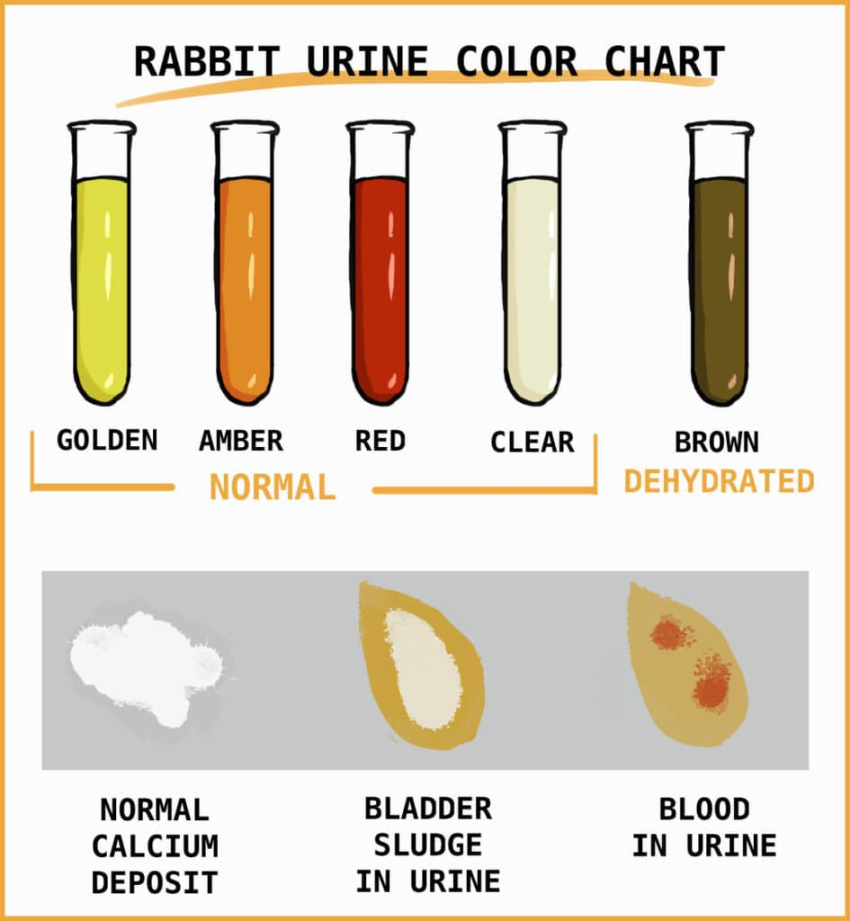Why is My Rabbit Peeing Orange?
Rabbits make wonderful pets, but just like any other animal, they can sometimes experience health issues that may cause concern for their owners. One particular issue that may raise alarm bells is when a rabbit starts peeing orange. This change in urine color can indicate several potential problems, ranging from harmless dietary changes to more serious health conditions. In this article, we will explore the various reasons why your rabbit may be peeing orange and what you can do about it.

Dietary Factors
The most common reason for a rabbit’s urine to turn orange is its diet. Rabbits have a delicate digestive system that requires a high-fiber diet consisting mainly of hay. When rabbits consume foods that are rich in pigments, such as carrots, beets, or even certain types of hay, it can cause their urine to become dark orange or even red. This discoloration is harmless and typically resolves itself once the dietary intake of pigmented foods decreases.
Dehydration
Dehydration is another common cause of orange urine in rabbits. If your rabbit is not drinking enough water, their urine can become concentrated, leading to a darker color. This can happen if your rabbit’s water bottle is not functioning properly, or if they have a preference for other water sources, such as a water bowl or even moisture-rich vegetables. It is important to ensure that your rabbit has access to fresh, clean water at all times to prevent dehydration.
Urinary Tract Infection
A more serious cause of orange urine in rabbits is a urinary tract infection (UTI). UTIs can affect rabbits of any age and can be caused by bacteria entering the urinary tract. In addition to orange urine, other symptoms of a UTI may include frequent urination, straining to urinate, blood in the urine, and lethargy. If you suspect that your rabbit may have a UTI, it is crucial to seek veterinary attention as soon as possible. UTIs can be painful and potentially lead to more severe complications if left untreated.
What to Do if Your Rabbit is Peeing Orange
If you notice that your rabbit’s urine has turned orange, the first step is to assess its overall health and behavior. If your rabbit is otherwise acting normally, eating well, and displaying no other concerning symptoms, it is likely that dietary factors are the cause. In this case, you can try adjusting their diet to eliminate pigmented foods and monitor if the urine color returns to normal.
However, if your rabbit is displaying any other symptoms or appears unwell, it is best to consult with a veterinarian. They will be able to perform a thorough examination and determine the underlying cause of the orange urine. This may involve conducting urine tests, blood work, or an ultrasound to make an accurate diagnosis.
Depending on the diagnosis, treatment options may include changes in diet, increased water intake, antibiotics for UTIs, or other medications to address specific health conditions. It is crucial to follow your veterinarian’s recommendations and complete the prescribed treatment to ensure the well-being of your rabbit.
FAQs
Is orange urine always a cause for concern?
No, orange urine in rabbits is often due to harmless dietary factors. However, if you notice any other concerning symptoms or if the urine color persists for an extended period, it is best to consult with a veterinarian.
Should I be worried if my rabbit is not drinking water?
Yes, rabbits require a constant supply of fresh water to stay hydrated. If your rabbit is not drinking water, it is crucial to investigate the cause and ensure they have access to water at all times. Dehydration can lead to serious health issues.
Can I prevent urinary tract infections in rabbits?
While it is not always possible to prevent UTIs in rabbits, providing a clean living environment, a balanced diet, and plenty of fresh water can help reduce the risk. Regular veterinary check-ups can also help detect and address any potential health issues early on.
Are there any specific foods I should avoid feeding my rabbit?
Yes, rabbits should avoid foods high in sugar, such as chocolate, candy, and other human treats. Additionally, certain types of hay, such as alfalfa, should be given in moderation due to their high calcium content. Consult with your veterinarian for a comprehensive list of foods to avoid.
Remember, if you ever have concerns about your rabbit’s health or notice any abnormal changes, it is always best to consult with a veterinarian. They can provide you with the most accurate diagnosis and appropriate treatment options for your beloved pet.
Related Articles…
Copyright Notice:
All images on this website are obtained from the internet and remain copyrighted to their original owners. If you hold copyright to any image and want it taken down, please reach us.